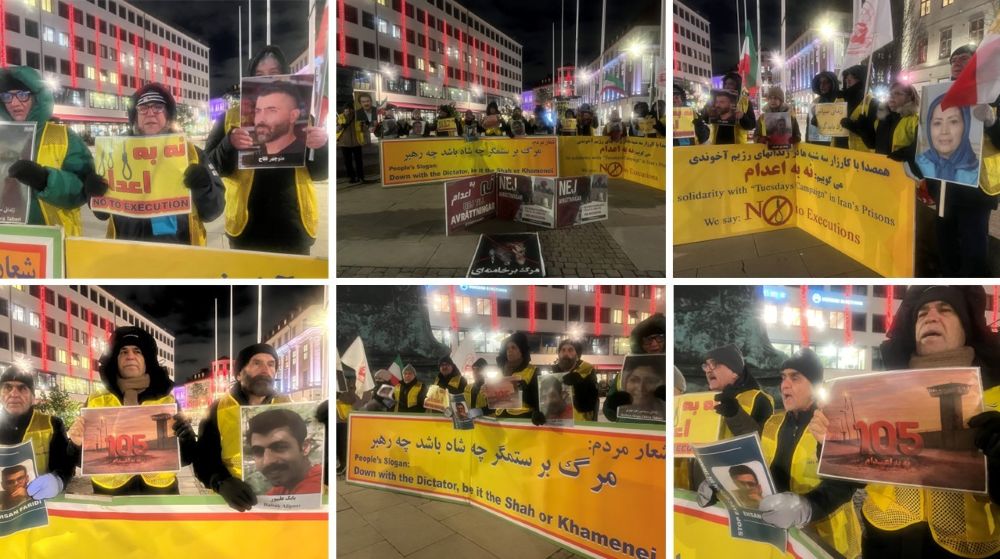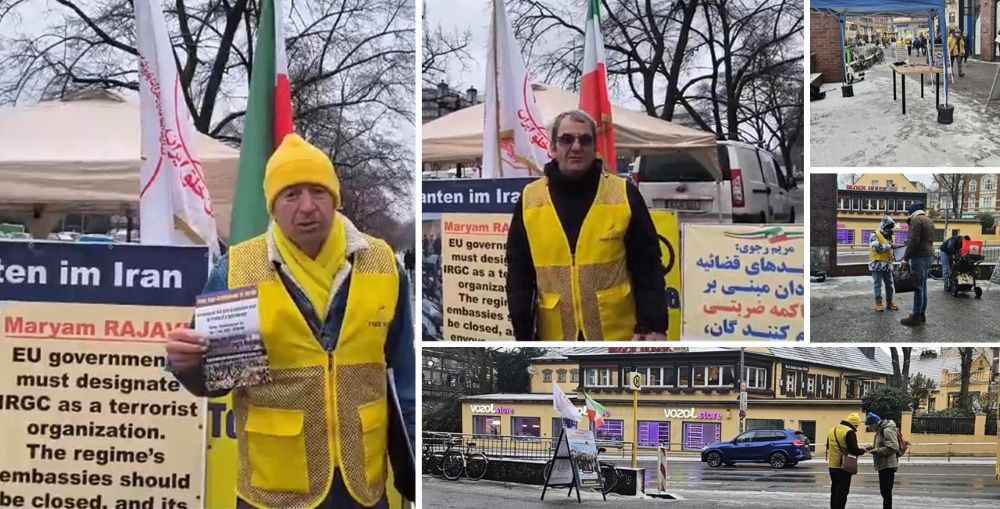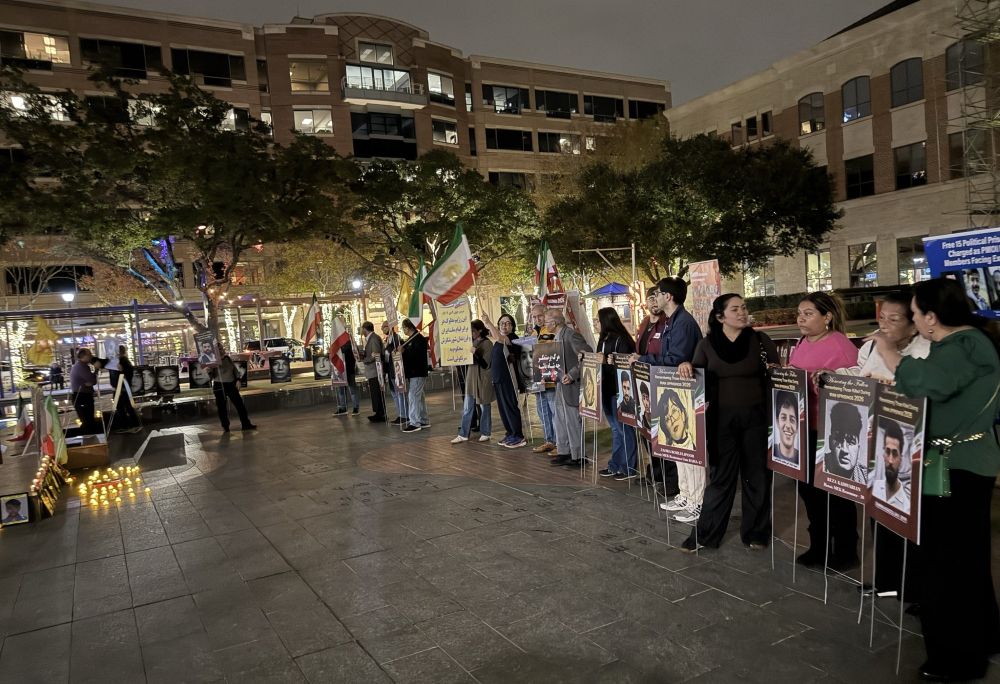On July 13, 2019, Ashraf 3, new home to members of the Iranian opposition People’s Mojahedin Organization of Iran (PMOI/MEK) hosted many Iranians and distinguished figures from the world’s five continents. Former director-general of the U.S. Federal Bureau of Investigation (FBI) Louis Freeh was one of the prominent politicians who took part in the gathering and delivered important remarks. He said:
I am very, very honored to be here today with you. And your inspiration, your prayers, your support, your commitment in spirit for freedom have carried you so far in such a short period of time. Madame Rajavi, we salute you, we love you, we respect you for not just the leadership and the courage that you’ve shown but the ability to move this peace commitment as far as it’s moved in such a short period of time.
And I want to be brief. One of the advantages of speaking after all my eloquent American colleagues is I can just adopt and incorporate by reference everything that they’ve said, which I do. But I do want to single out and thank the people and the government past and present of Albania for rescuing and saving all of you in this room. An absolutely remarkable act of humanity and (Bessa) I think is the word that you call it. And I’m proud to say that one of my sons, I have six of them, has married an Albanian woman.
So let me talk very, very briefly about the changes. So not too many years ago, we were all in this room and many others worried for the life, the safety and the life of all of the Ashrafis present here and many who have been killed. In the United States of America, those of us who supported you became the subjects of criminal investigations by our own government. And we actually welcome that. How great to investigate former attorney generals, former directors of the FBI and the CIA, the chairman of the Joints Chiefs of Staff, military general, the Speaker of the House, and I could go on and on. But you know, they didn’t ask us any questions.
And that was consistent with when I was the director in 1997, nobody asked me any questions about the MEK before the administration unjustifiably put you on the terrorism list. And why did they do that? There’s a lot of explanation. But there was I believe a very bad intent behind it. And if you want to use the word collusion properly there was collusion with the Iranian government to designate a freedom organization as a terrorist organization to accommodate and appease the terrorist leadership. That was a mistake. How ironic now that we see the IRGC, who killed 19 Americans in Khobar Towers in June of 1996, and countless other victims, many of whom we heard yesterday, now sitting on that list.
24 years ago, Iran-sponsored terrorists killed 19 Americans at the Khobar Towers and injured hundreds more. A U.S. court has once again found Iran liable to pay damages to victims and their families. Justice is overdue for the many victims of Iranian-supported terror.
— Matthew Miller (@StateDeptSpox) July 9, 2020
Louis Freeh: So, I think all of the indicators of change are here. Look at the Iranian economy. Look what the corrupt and terrorist leadership has done to the economy, contracting the GNP by 6%. The Rial has gone down 60%. It’s trading for 190,000 per dollar. And actually the state of the Rial is in a better condition than the integrity of the leadership in that country. We will see amazing change, and I think we will see it quickly.
Louis Freeh: One of the things I just wanted to say is listening to the testimony yesterday and viewing the room next door, one of the things we have to get ready for, one of the things we have to prepare for, is the prosecution and conviction of the thousands of criminals who have murdered, assassinated, killed, not by accident, not by coincidence, but a designed plan to murder, mass murder a group of people.
So, when you talk about the exhibit, I have to be loyal to my own perspective, I don’t see it as an exhibit. I don’t see it as a museum. I see it as an evidence room. And an evidence room that has photographs, digital records, and can you imagine all the evidence, particularly in this day and age, all the evidence that exists that can’t be erased, can’t be deleted, digital evidence, photographic evidence, and most importantly what we heard yesterday, unbelievable heartbreaking testimony.
But that’s eyewitness evidence, that’s the most important thing in a criminal prosecution. So what I think should happen now, as we prepare for change, one of the most important things that I think everybody in this room can do is apply some of the same skill and detail and meticulousness that you’ve applied to everything you’ve done and start preparing for criminal prosecutions by an international criminal court.
Economic sanctions are great. They’re obviously having a big impact. But what will terrify the terrorist more than anything is the prospect that they will be arrested, prosecuted, and convicted under the rule of law, which is something very strange for them?
So, I would ask you particularly my friends the Ashrafis watching this amazing construction, but I think of Ashraf 3 as temporary quarters. It’s Ashraf 4 that we want to visit. And I would ask the and I would ask all of you who worked here on Ashraf 3, how long would it take you to build a courthouse in Tehran? and you know what, you already have a prison, so we can incarcerate them under humane conditions this time in Evin Prison, and they can be prosecuted as people were prosecuted in Nuremberg, in other places.
And the biggest threat to that, actually I think the biggest threat, Mrs. Rajavi, to everything you’ve done, is not even the regime itself, it’s the politicians who will try to accommodate and appease and come up with the ridiculous type agreements that we saw in 2015. Truth commissions, forgiveness, let’s go on. We can’t go on.
The testimony we heard yesterday cries out for criminal prosecutions, convictions, imprisonment, and I think now we have to put that documentation together like the Simon Wiesenthal Center did after World War II. You may be doing that already but I think that’s a concentrated effort that we should do now. And there will be many things including broken-down American prosecutors who will help you put that archive together. Thank you, God bless you.



